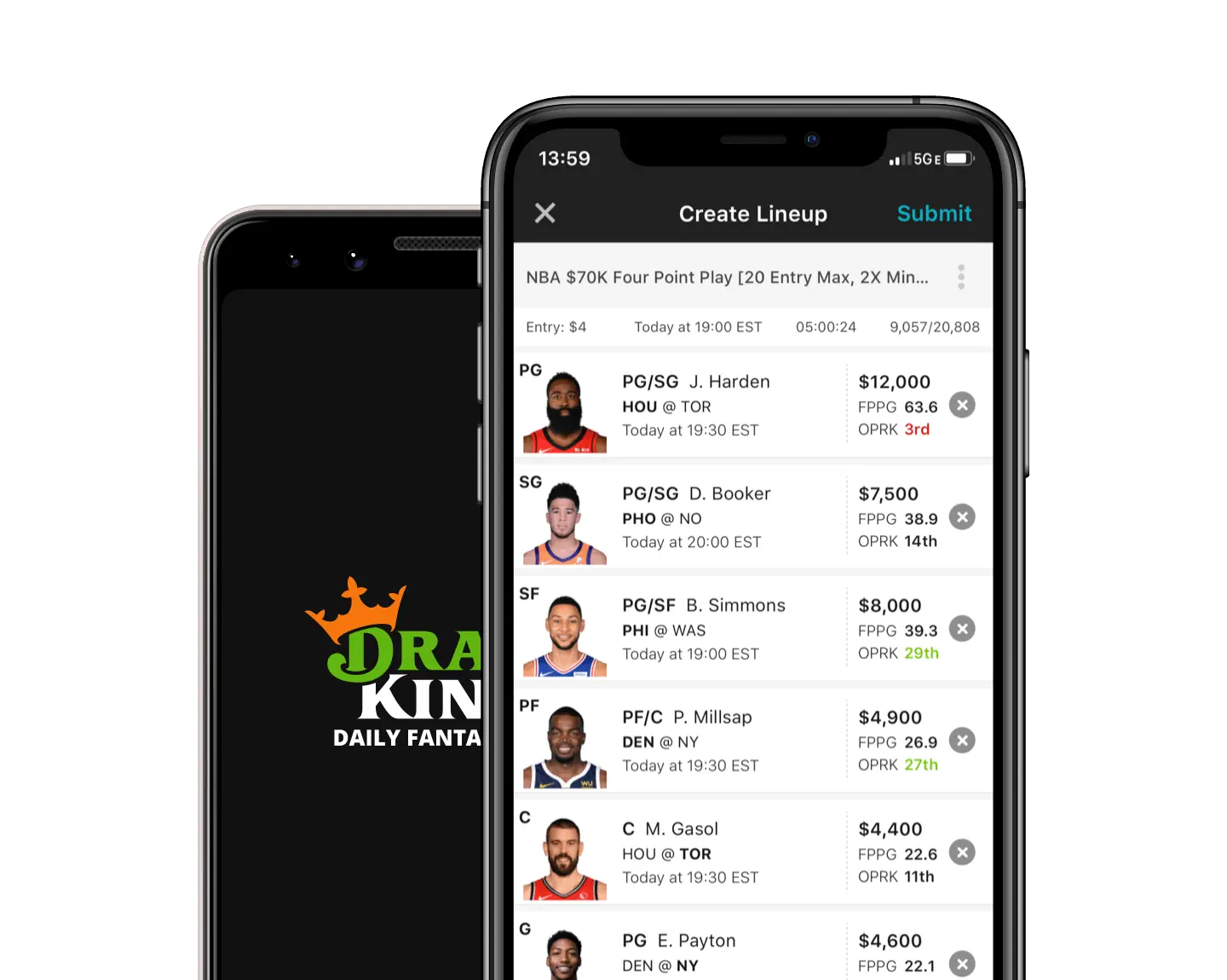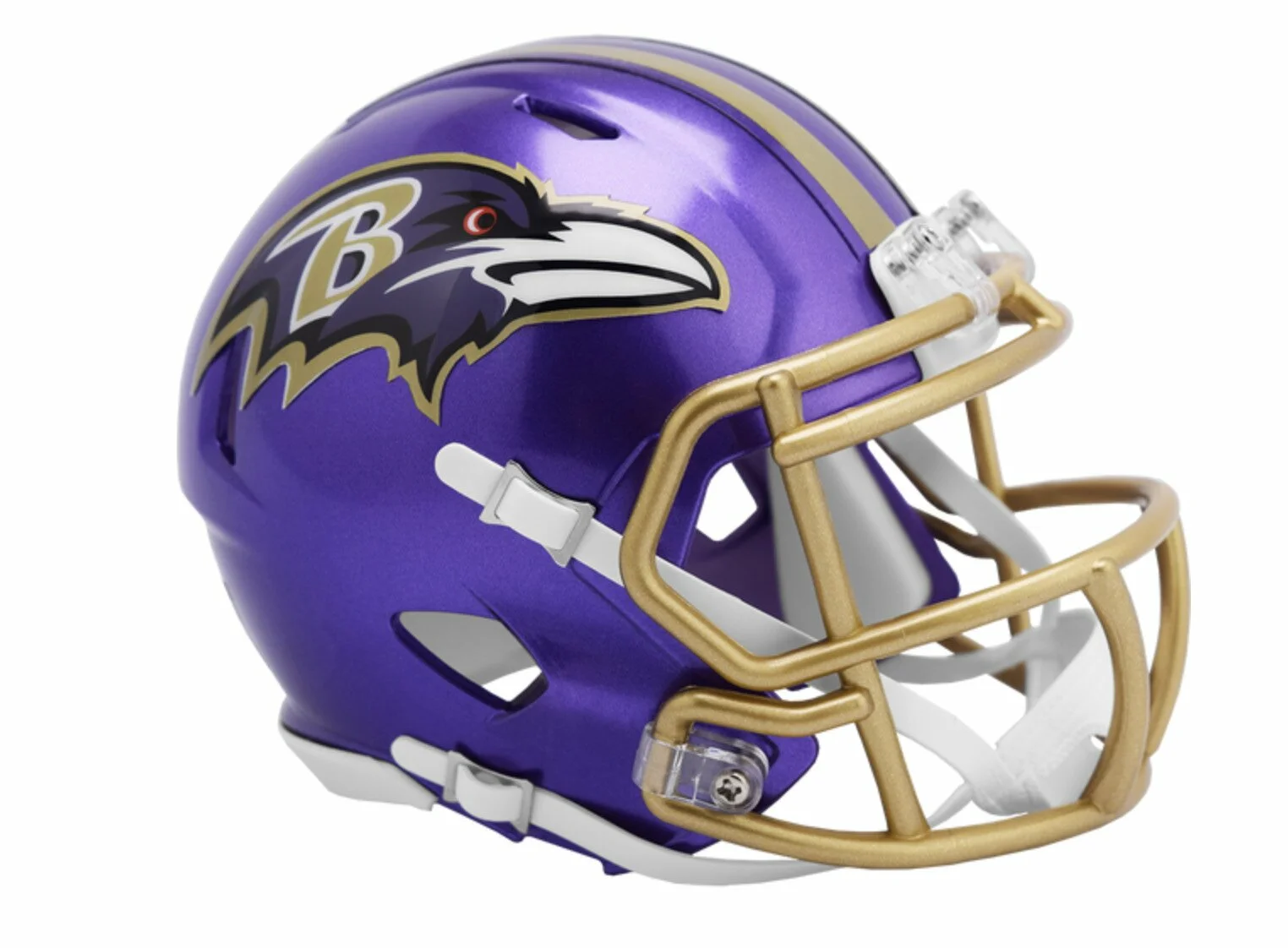Daily Fantasy Sports: A Complete Guide
If you live in the United States then there’s a very good chance you’re at least vaguely aware of the existence of daily fantasy sports (DFS). You might have heard people talking about the subject, or read websites where the subject has been mentioned. If you watch much TV, you’ve almost certainly seen the commercials for daily fantasy sports sites that seem to be shown all the time.

You may well be aware of DFS if you live in other parts of the world, we just mention the US because it has become a huge phenomenon there. Its popularity is literally exploding, not least because it’s an entirely legal form of gambling. Gambling online from the US can be something of a challenge due to the complex legal situation, but fantasy sports can be played on the internet for real money without any fear of breaking the law.
Most states in the USA treat games of skill differently than games of chance. That’s why there’s so much controversy over poker—legislators and courts are struggling to decide how much of the outcome in a poker game is owed to chance versus skill. On the other hand, if you’re shooting pool, playing golf, or playing darts, these are clearly games where skill predominates. Fantasy sports are also games where skill predominates, and that makes these contests legal in most states.
You don’t have to be an experienced gambler to enjoy playing daily fantasy sports, as it appeals to all kinds of different people. There are few activities on the internet that are more fun than playing fantasy sports, and even less that also offer the chance to win some money. We strongly recommend trying it for yourself, but not before you fully understand what’s involved.
That’s why we’ve produced this daily fantasy sports guide. It covers all aspects of this popular pastime, including the best places to play fantasy sports online. It will even help to improve your chances of winning money, as there’s plenty of strategy advice included. You can see the full contents of the guide below, and further down this page we’ve provided detailed information on everything you need to know to get started.
Contents of Our Daily Fantasy Sports Betting Guide
Articles for Beginners
Strategy and Advice
Reviews of DFS Sites
Daily Fantasy Sports: An Introduction
In our introduction to daily fantasy sports we’re going to cover a few things that you should really know before you get started. To begin with we look at the main reasons for playing, and we then provide an overview of how everything works. We also list the different sports available, and the different types of contests you can play in.
Why Play Daily Fantasy Sports?
Playing fantasy sports is a great deal of fun. It’s a great way to put your sports knowledge to the test against other sports fans.
If you’re good enough, there’s money to be won from playing fantasy sports. It’s even possible to make a full time living from it.
In most parts of the world, fantasy sport contests are not considered games of chance. This usually means they are completely legal to play.
Learning how to play fantasy sports doesn’t take long at all. It doesn’t take long to get signed up online and start playing either.
How Daily Fantasy Sports Works
One of the most appealing aspects of daily fantasy sports is that it’s really quite simple. If you’re at all familiar with regular fantasy sports then you’ll understand it right away. There are a few differences between DFS and regular fantasy sports though, and we explain those further down this page.
It’s not difficult to learn how to play daily fantasy sports even if you’ve never played fantasy sports at all, as the fundamental principle is very straightforward. The idea is that you create a “fantasy team” by picking from a pool of real players, subject to various rules about how much you can spend and which positions you must select. Your fantasy team then earns points based on how the actual players perform in real games.
Regular fantasy sports leagues typically last an entire season, and are played by groups of friends or colleagues. Daily fantasy sports contests, however, take place over a single round of games, and are played online at specialist sites. Anyone can join these sites, known as daily fantasy sports sites, and pay money to enter any contests they wish to take part in. All the entry fees paid by players taking part in a contest go towards a prize pool, which is then paid out to the winner(s) of that contest.
Available Sports
The sports that are most widely available in this format are as follows.
- Baseball
- Basketball
- Football
- Hockey
You’ll find these at most daily fantasy sports sites, but they’re not the only ones available. Some sites offer different sports too, and have contests for people who love golf, mixed martial arts, NASCAR and soccer.
Most sites offer both professional and college football and basketball, and this presents an opportunity. Sports fans are generally more knowledgeable about what’s going on in the NFL and the NBA than they are the college football and basketball games. If you really know your college sports, you can get an edge over the players who don’t.
Types of Contest
There are several different contests available at daily fantasy sports sites, although most of them can be broadly categorized into two specific types. These are as follows.
- Cash Games
- Tournaments
You’ll find all kinds of subcategories and niches within these two broad types of contests, although you don’t need to worry about that for now. You just need to understand the basics of how cash games and tournaments work.
Cash Games

The most common form of cash games are 50/50s and head to heads. In both of these contests you have a 50% chance of winning money, although this doesn’t take into account your skill levels and the skill levels of your opponents. In a 50/50 contest, all the entrants with scores in the top 50% receive an equal payout. If ten players enter a 50/50, for example, then the prize pool is split between the five players who have the highest scores.
A head to head, which is typically referred to as a H2H, is basically just a 50/50 contest with only two entrants. The player with the highest score out of the two wins the prize pool.
Tournaments
Tournaments are contests that generally feature more entrants, with only the top few players getting prizes. A tournament with 100 entrants, for example, might award prizes to the top fifteen players. The first placed finisher would get the largest share of the prize pool, the second placed finisher would get a lower share, the third placed finisher an even lower share, and so on.
The strategy required for tournaments is very different from the strategy required for cash games. To win first, second, or third place in a large field of competitors requires a different drafting strategy than just trying to land in the top 50% of the field.
Getting Started With Daily Fantasy Sports
Getting started with daily fantasy sports isn’t as hard as you might think. In fact, it’s pretty easy.
Step 1 – Join a Daily Fantasy Sports Site

The first step is to find somewhere to play. We’ve written detailed reviews of the various options available (these are listed near the top of this page), and you can read through those if you want to find out what each site has to offer.
Once you’ve chosen a site, you then need to open an account with them. This involves simply providing a few pieces of information such as your name, address, telephone number and e-mail address. You’ll have to choose a username and password as well. With an open account, you’ll be ready to make a deposit and start playing.
Step 2 – Make a Deposit
One of the frustrations that poker players, sports bettors, and casino players can face is getting money into their accounts at online gambling sites. This can be a challenge in some parts of the world, especially the United States. There are no such problems at daily fantasy sports sites though. Most of them accept paypal and major credit cards like Visa and MasterCard, and it’s a simple matter of entering the relevant payment details and choosing how much to deposit.
Something to look out for when making an initial deposit at a site is any sign up bonus that might be available. Most sites incentivize new sign ups by offering a matching bonus of some kind. For example, depositing $600 might earn a $600 bonus. This bonus money doesn’t get credited to your account immediately though, it’s released over time by participating in contests. The rate at which a bonus is released varies by site.
Step 3 – Enter A Contest
Entry fees for contests can be as low as a dollar and as high as $10,000. Of course, the prize pools for these contests are made up of the entry fees, so the higher the buy-in, the more prize money. If you’re just getting started, we’d recommend sticking with the lower buy-in contests until you get a feel for how everything works.
Step 4 – Draft Your Team/Roster

Once you’ve signed up for a contest, you’ll be taken to a page listing all the available players. You now have to draft your team/roster from these players. The interface for selecting players is quick and intuitive at all the major sites. There’s usually an option to sort players by position or by cost, and position and cost are both important things to consider.
There will be requirements for certain positions that have to be filled when drafting a team. In a fantasy football contest, for example, you’ll need a quarterback, two running backs and probably three wide receivers. You’ll also need to include a tight end and a kicker, and you’ll have to draft a defense. In some cases there might be a flex or utility position, where you can pick up an extra running back, wide receiver, or tight end. The exact position requirements vary depending on the site being used and the relevant sport, but there will always be specific rules to adhere to.
There will also be a salary cap, so you’ll only be able to spend a certain amount on drafting players. Again, the size of the cap will depend on the site and the sport. Your job is to get the best value for your “dollar” when drafting players. The strategy articles we’ve written can help with this.
Step 5 – Check the Results
With the draft complete, it’s then just a matter of waiting until all the relevant games have been played. You can then log in to your account to check the results of the contest you entered and see how you did. Any prize money won will be automatically be added to your account.
Getting Started With Daily Fantasy Sports
If you’re considering getting started in daily fantasy sports then you’re probably already familiar with traditional fantasy sports leagues. These have been around for a long time now, and they have always been very popular. At least 22% of Americans have participated in at least one fantasy league at some point in their lives, and nearly 30 million of them play every year. It’s not just Americans who play either. Fantasy soccer leagues are huge in the United Kingdom for example, and there are many other parts of the world where fantasy sports leagues are widespread.
Don’t worry if you haven’t played in fantasy sports leagues before, as it’s not a requirement for playing daily fantasy sports. If you have, though, you shouldn’t assume that daily fantasy sports are going to be easy, even if you’re a great player in season-long leagues. Such an assumption might lead to frustration if it turns out that your experience doesn’t translate into instant success when playing daily fantasy sports.
Try to bear the following two points in mind.
- Daily fantasy sports resemble season-long fantasy games a LOT.
- Daily fantasy sports are totally unlike season-long fantasy games.
Wait a minute, you’re probably thinking. Isn’t this a contradiction? Yes, it is, but there’s a quote from F. Scott Fitzgerald that applies here.
What we’re trying to illustrate here is that you don’t need to worry about the contradiction. The simple fact is that daily and season-long fantasy sports are very similar in some ways, and very different in others. They are more similar than different really, as the fundamental principle is very much the same for both. The idea is to draft players, score points based on the performances of those players, and beat the opponents in your league.
It’s advisable to understand the differences though, so let’s take a look at the main ones. Some of them are small, but some of them are quite significant.
The Prizes
A lot of season long fantasy football leagues are played just for bragging rights. You won’t find many – if any – daily contests played for bragging rights. They are all played for real money, so these are the contests for you if you want to try to make a profit from your sports knowledge.

Daily fantasy sports have an advantage even over season-long leagues that are played for money; they offer quick payouts. Do you really want to wait an entire season for a shot at the prize pool, when the chances of winning may not be that great? Or would you rather wait 24 to 72 hours for a 50/50 shot at the prize pool? If you chose the latter, there are plenty of daily fantasy contests that fit the bill. If you prefer going after larger prize pools, and are happy with a smaller chance of winning, there are those kinds of tournaments available too. You can still get the big prize in a day or two instead of waiting for two or three months.
Time Commitment
A season-long fantasy sports league can be a huge time commitment, especially for a sport like baseball where you have to set a roster every day. Even a season of fantasy football requires a good bit of management, such as dealing with injuries, trade offers, and free agents. Plenty of folks give up on their fantasy leagues purely because of the time they have to spend on them.
With daily contests, you only need enough time to draft a team and to log in later to view the results. That’s a huge selling point. If you don’t have much time available in any particular week, you can still probably fit in a contest or two. If you’re completely swamped and have no free time at all, you can just not play at all. It’s not like a season-long league where taking a week or two off could harm your chances.
Drafting Rules
In a season-long league, if you draft a player then no one else can get him. In daily contests there are no such restrictions. Everyone drafts from the same pool of players, and anyone can draft a player even if other entrants have already drafted him. In fact, when you draft your team for a daily contest, you don’t even get to see who the other entrants have drafted until after kickoff or the first pitch. You might even have the exact same team as one of your opponents.
Another potential difference in the rules is related to salary caps. Some season-long leagues impose these, but not all of them. Daily contests always use a salary cap though, and this affects the required strategy in multiple ways.
Social Factor
Finally, many season long drafts are held in person at someone’s house, a restaurant, or a bar. Daily fantasy sports use only online drafts. If you’re playing for social reasons, you’ll want to put points in the season long pros column for that one. On the other hand, you might prefer the relative anonymity and solitude of the online draft.
We’re going to finish up by making a very important point. Daily fantasy sports might not be considered a form of gambling in the traditional sense, but it still involves risk. It doesn’t matter how good you are at drafting a team, or how encyclopaedic your sports knowledge is, there is always a chance that you’re going to lose some money.
This doesn’t have to be a problem, as long as you always remain in control and don’t spend money that you can’t afford to lose. If you’re just playing for fun, make sure that it stays fun. If it starts becoming a drag or a chore, take some time off and pursue other hobbies. If you’re one of the few people able to make a full time income from fantasy sports, make sure that you maintain your discipline at all times.









